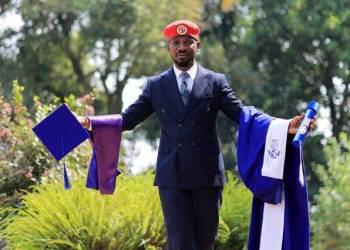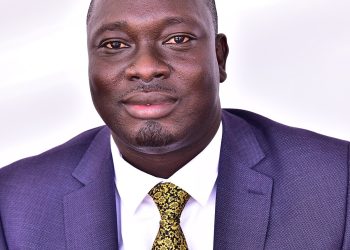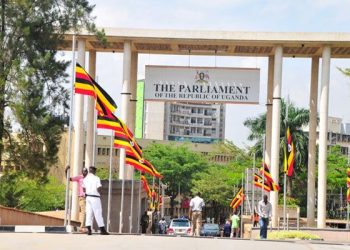Gen. (Rtd). Gregory Mugisha Muntu is a politician cut from a different piece of cloth. His calm persona and his knack for introspection, rather than acting on the spur of the moment or, acting on emotions are attributes out of sync with the current polarized political climate in Uganda.
In November 2017, following his loss to Amuriat Oboi in the race for the presidency of the Forum for Democratic Change (FDC), Muntu caused a stir when he called a press conference in Kampala. In attendance were some of the FDC bigwigs, including Opposition chief whip, Ibrahim Ssemujju Nganda and then leader of opposition in Parliament, Winnie Kiiza.
The duo, just like a host of other FDC lawmakers present, had been at the forefront of a bruising contest with Amuriat replete with nitpicking and name-calling for the party presidency. Was Muntu preparing to announce his departure from FDC, formation of a new political party or, in the unlikely scenario, fold his tail and beat a haste retreat back to the ruling National Resistance Movement (NRM)?
To the disappointment of journalists eager to write a screaming headline about a messy divorce from FDC, there was no major announcement. Instead, Muntu, Uganda’s youngest and longest serving army chief, announced a timetable for his nationwide consultation, to inform a decision about his future. But the actual divorce from FDC came in late September, last year.
But to those following Muntu’s game plan after his loss to Amuriat, the schism was not as seismic as it would have been before he launched his nationwide consultations. After quietly scaling a host of legal hurdles, the Electoral Commission (EC) on Tuesday cleared Muntu’s party, Alliance for National Transformation (ANT).

Ever since it became clear that Muntu was set to form a new party, there has been debate whether FDC’s grip on the opposition was about to be consigned to the political archives. At 60, Muntu has little room for error. ANT has to hit the ground running, lest he ends up like Minister for Kampala, Beti Kamya who left FDC, formed a political party – Federal Alliance, only to eat humble pie and fi nd solace in NRM’s embrace once the going got tough.
With NRM Central Executive Committee endorsing President Yoweri Museveni for the 2021 polls, Bobi Wine and his People Power wave already in a tango with FDC over the opposition space, Muntu’s ANT might find itself on the periphery of the political narrative ahead of the 2021 polls.
FDC’s deputy spokesperson, John Kikonyogo, feels ANT does not pose a threat to Uganda’s biggest opposition party.
“We know Muntu, his capacity and the people he is working with. His party poses no threat at all to FDC. But we cherish democracy and we congratulate ANT,” Kikonyogo said.
On his part, Government spokesperson Ofwono Opondo described Muntu’s ANT as “a threat to FDC”, citing the former army chief’s discipline as one of his strongest points.
“Muntu will exhibit discipline and responsibility. He will not allow his followers to become rogues, the way FDC has done. We expect vigorous, but healthy competition on all fronts,” Opondo said.

But Alaso, who has been the chief convener of all meetings of the New Formation that has metamorphosed into ANT, told our website that they did not register their party to replace anybody. “Our objective is not to remove FDC or remove People Power.
“We are registered to champion our goal and our goal is to build a credible political party that will take an active part in the politics of this nation and be a contributor to the ultimate goal of (regime) change in this country,” Alaso said.
She opined that the comparison between them and the Uganda Federal Alliance party that some people are making is unwarranted. Peter Walubiri, a constitutional lawyer and member of Uganda People’s Congress, argued that it will all depend on how Gen. Muntu and his party do their politics.
“If they think they are here to settle scores with their former friends in FDC, then they will go the Uganda Federal Alliance way, but if they want to fi ght against the dictatorship and to dislodge it, then they have a lot of work to do to complement the efforts made by their predecessors,” he said.
Walubiri stressed that if the focus of Muntu’s party is getting many seats in Parliament and in the local councils which entails competing even against the other parties in the Opposition, then that will be counterproductive because it will instead cause avoidable attrition in the opposition.
Prof. Mwambutsya Ndebesa, a lecturer of history and political science at Makerere University, said all the initiatives of credible people with national profiles are expanding the political space for people’s participation and once there is national participation by citizens, then there is likely to be political voice and, subsequently, political accountability.

“Rather than one group dominating, let there be many to raise voices, to raise civic competence, to raise skills of participation and to raise standards and norms of democracy and governance, because democracy needs to be demanded,” he said.
He explained that in economics when the supply exceeds demand, there is an economic crisis and when demand also exceeds supply, there can be a challenge. Former Oyam North MP Ben Wacha said in the present day political circumstances, the Opposition parties should look at the possibility of fronting one individual, rather than fragmenting themselves into different groupings. But in deciding to quit FDC, a party he helped birth in 2004, Muntu must have been aware of the political storms ahead. And for the decorated soldier, the battle starts.































































